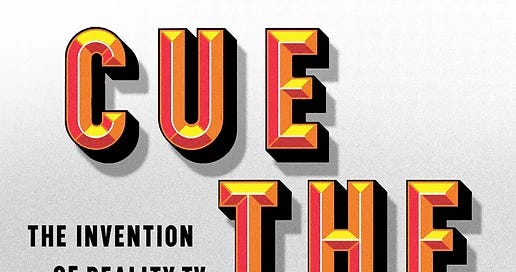TV Critic Emily Nussbaum on the Messy, Enthralling History of Reality TV
The New Yorker writer talks about her acclaimed new book 'Cue the Sun.'
We develop profound relationships with the critics we admire. We anticipate their likes and their dislikes, we enjoy seeing our preferences mirrored in their own, and sometimes we like being prodded toward something new that we might not have discovered on our own.
For more than a decade, as she served as a television critic first at New York magazine, and then at The New Yorker, Emily Nussbaum was that voice for me. Witty, insightful, with an encyclopedic knowledge of television, and insistent that we stop treating television like some lowest-common-denominator purveyor of mediocrity, Nussbaum won the Pulitzer Prize for criticism in 2016.
And while I still find that I miss hearing her commentary on television week in and week out now that she is no longer The New Yorker’s television critic, she has returned with a remarkable new book called Cue the Sun! The Invention of Reality TV, in which Nussbaum attempts to wrestle with the messy story of reality television.
Cue the Sun! (named after a line from The Truman Show, itself a movie about a proto-reality series) is funny and harrowing in equivalent terms, deeply admiring of reality’s creativity and painfully aware of its lasting harms—Donald Trump not least among them.
I recently had the chance to talk with Nussbaum about the history of reality television, the economic underbelly of television production, the kinds of shows even reality-TV vets often refuse to participate in, and much more.
Subscribe to read on for Nussbaum’s thoughts on pioneering 1950s-era reality TV program/game show Queen for a Day, defining “reality,” the reality show that turned her into a reluctant voyeur, how production manipulates contestants on The Bachelor, and what producers on The Apprentice think about Donald Trump.





